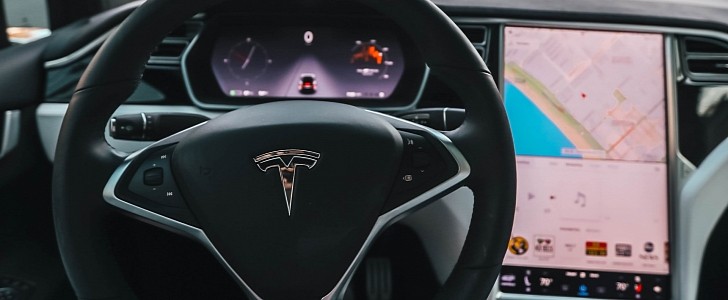The automotive industry is convinced that autonomous vehicles (AVs) are the future: whether we like it or not, the time has come for the human operator to be removed from the experience. Here’s another study to tell us what we already knew: the human operator is not yet ready to say goodbye.
Not that it still needed to be said, but AVs are still in the distant future. The industry is optimistic about the development of the technology, to the point where we hear phrases like “in the next five years” or, if you ask Elon Musk, way sooner than 2025, concerning the introduction of AVs on public streets. In case you were wondering how drivers felt about this, they’re not ok.
A new survey conducted by CarGurus on some 1,000 UK drivers confirms what similar studies have already shown: current drivers have little faith in driverless cars and would rather do without them. Whether a lack of trust in AI or the desire to maintain some control, drivers are still against AVs – even though they admit driver-assist technology is making things easier and safer on the road.
According to the survey, which you can find in full below, one-third of respondents believes they will own an AV by 2031. Still, they dread the day when that comes to happen, with 48% listing a concern about price and just 20% saying they would fear sharing the road with driverless cars.
The irony is that 68% of respondents believe driver-assist makes driving safer and easier, but only 29% believe AI will make AVs safer. To sum up, 36% said they were “concerned” about the development of AVs, while 30% said they were excited and 35% declared themselves indifferent. Nearly half of respondents would not be comfortable in any self-driving car scenario, whether with them in the AV or in a human-operated car that shared the road with AVs.
The conclusion is that “more people are concerned about autonomous vehicles than they are excited,” which means that the public needs to be properly educated on the benefits and the safety of the tech. The silver lining is that once AVs do become norm, drivers expect them to behave in certain ways in certain scenarios (drive them home after a drink, pick up groceries, make the commute more productive), so carmakers should take these early indications into account.
A new survey conducted by CarGurus on some 1,000 UK drivers confirms what similar studies have already shown: current drivers have little faith in driverless cars and would rather do without them. Whether a lack of trust in AI or the desire to maintain some control, drivers are still against AVs – even though they admit driver-assist technology is making things easier and safer on the road.
According to the survey, which you can find in full below, one-third of respondents believes they will own an AV by 2031. Still, they dread the day when that comes to happen, with 48% listing a concern about price and just 20% saying they would fear sharing the road with driverless cars.
The irony is that 68% of respondents believe driver-assist makes driving safer and easier, but only 29% believe AI will make AVs safer. To sum up, 36% said they were “concerned” about the development of AVs, while 30% said they were excited and 35% declared themselves indifferent. Nearly half of respondents would not be comfortable in any self-driving car scenario, whether with them in the AV or in a human-operated car that shared the road with AVs.
The conclusion is that “more people are concerned about autonomous vehicles than they are excited,” which means that the public needs to be properly educated on the benefits and the safety of the tech. The silver lining is that once AVs do become norm, drivers expect them to behave in certain ways in certain scenarios (drive them home after a drink, pick up groceries, make the commute more productive), so carmakers should take these early indications into account.









